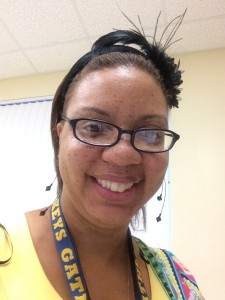Debora Spar’s book Wonder Women: Sex, Power, and the Quest for Perfection takes an insightful look at the place of women in today’s world and workforce. She talks about the age-old issue of women in leadership (or lack of women in leadership) in her passage (below). I was struck by something so obvious that I hadn’t thought about before. Women are not opting out before reaching executive positions just because work is too stressful, not child-friendly enough or because current male leaders are sexist, but because at the end of the day, they don’t love their jobs. They don’t love their jobs enough to endure the issues previously mentioned. This makes me think: what if encouraging young women to integrate purpose into their work is actually an answer for breaking the glass ceiling?
“[W]hen the choice is between compromising a family, women seem more inclined to focus on the family, men to stick with the job that pays the bills. Perhaps this goes back to our vestigial roles as feeders of children and killers of meat. Perhaps it is the media, still hammering stereotypes into our brains. Perhaps it is the modern workplace’s stubborn refusal to create schedules or structures that are even vaguely conductive to the rhythms of family life. But when push comes to shove –and it can, and it will- women are the ones who more often walk away. Not necessarily because their husbands push them to or because their employers are unwilling to accept a modicum of flexibility. No, because the kids are wearily and the dinners are rushed and the job, after ten or twenty years of working, has ceased to deliver the thrill it once did. If a job is truly satisfying to a woman, or if she needs the income it provides, she will strive to stay in the workforce. But if she doesn’t need the income, and she doesn’t love the job, it becomes tougher and tougher for a working mother to undertake all the juggling that comes with her role.”
As I was reading this passage, I remembered this amazing woman I met at a conference a year ago. She was the executive director of an influential education foundation in Minneapolis, founder of a pro-bono law group and mother of two. As we ate dinner, she shared with me all the work she had done, education she had completed and organizations she had started. I was in such awe, I blurted out the controversial question, “How do you do all that and have a family?” I will NEVER forget her response. To paraphrase, she said, “When my boys are sad to see me leave the house, I tell them about the work I am doing, the injustices I am righting and about the children less privileged than them who need me. I want them to understand that I would not be leaving them if I did not believe in my work… and they do understand. They are proud of me.”
I am not a mother so I can not speak from experience, but I can say two things: 1) I want my children to be proud of my work in the world, and 2) I want to see more women leaders in executive positions, myself included. This means young women need to spend their early twenties exploring how to have work with purpose and connecting to social causes where they can leverage their skills. Volunteering for a year at a nonprofit provides an opportunity for women (and men alike) to learn more about social issues affecting a population they care about and how their specific skill sets can be used to address these issues. If more people participate in service years, who knows, it may lead to more diversity in the board room. What do you think about this connection between purpose, service and the role of women leaders?
Dedicated to all the ladies applying to service year programs!
Written by Anna Lenhart
Edited by Kelly Scanlan


